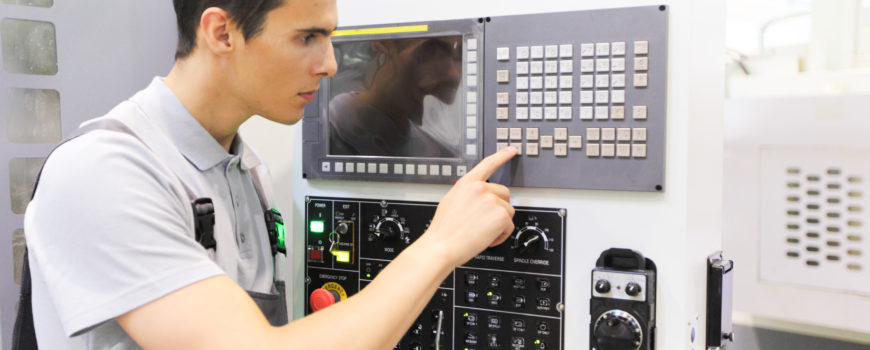All business people desire to expand and grow their entities. They would like to see these businesses increase performance production, strategies, and numerous other practices. While some these people may have the right idea, some are implementing ineffective approaches. Taking your machine shop to the next level will not just happen through your usual business practices. You have to introduce advanced methods that will elevate your success. Here are some of the top proven techniques that our Denver Manufacturing facility has implemented.
Automation
The mention of this term brings the idea of introducing robotic science to your shop. Automation entails other different and simpler ways besides robots. However, robots are the most effective and versatile tools of automation, but you have to be realistic. If you cannot afford it, opt for other alternatives while you plan about it. Automation makes work efficient and faster. For instance, automation is a fundamental requirement in precision manufacturing to achieve high accuracy. Evaluate your business and determine where to begin as you gradually increase your automation.
Additive Manufacturing
Elevating your business could mean introducing a new function such as original equipment manufacturer. Additive manufacturing has the capability of transforming your machine shop. Adding a new function will undoubtedly require a substantive investment. If your shop is not ready for this new level, keep in mind and consider it for the future. It has a lot of potential in part designs, supply chain and lead times. Additive manufacturing may demand a heavy capital outlay but later give big returns. It is also a major step in your business and requires keenness. Think about it and deliberate with other stakeholders to evaluate feasibility.
Lean Production
Your custom machine shop will never realize success until you avoid wastage and have a consistency of lean production. That means you will always have to conduct evaluations that identify non-value added practices and eliminate them. Most of the wasteful efforts and steps are invisible and cannot be identified without an examination. Walking through your shop and noting these processes is the most effective way of making this change. Lean management is not just about cutting waste. It also entails fully utilizing resources and the available tools to increase production.
Training
The manufacturing industry is evolving rapidly, and something new is emerging on a daily basis. You cannot make progress in your shop if you do not adopt new business practices. This entails purchasing new work tools and integrating emerging models. Any further changes ought to be accompanied by training and educating employees. Training is not just to orient and teach them about new things. It is also to enhance workplace health and safety. Workplace hazards characterize CNC manufacturing, and hence, employees should be protected. Training forms a culture of learning in your business. Your team will always be enthusiastic to get more information and knowledge.
Routine Maintenance
A CNC machinist understands that maintenance is necessary. You do not have to conduct this exercise because some areas require an expert. For instance, a machine shop Denver will hire an engineer to do this work. Maintenance also includes updating software and upgrading tools. They are the lifeblood of your machine shop because these tools significantly determine your performance. Modern machines are programmed to diagnose themselves. In case an emergency situation happens, a device or machine will shut down automatically and minimize possible damage. Conducting routine maintenance should not cost you much.
Organization and Collaboration
Business does not flourish and prospers because on one individual’s effort. Your custom machine shop certainly has several employees and other stakeholders. Advancing your shop will require improved organization and collaboration of both people and activities. As the leader or CNC machinist in that workplace, you must provide guidance. Establish cohesion through properly organizing tools and equipment in the shop. An orderly workplace increases workflow pace. Teach people how to work together and cooperate in their activities. Each employee contribution major counts in the progress of the business.
Realistic Goals
Endeavors of improving business at your shop will take time before they give substantial returns. It is like a journey that entails one step at a time. Set goals and have a plan after you decide to expand or elevate your business. Ensure these goals are manageable and practical. Some business people want to aim too high and hope to achieve it within a short time. Unrealistic goals will discourage you or even push you to unwise decisions. Small milestones are advisable because after you accomplish each, it motivates you to the next level.
Working Hard
The cornerstone of Denver manufacturing is working hard. All these tips and strategies of making you shop better will require a lot of effort. While most successful people emphasize on working smart, the hard work is part of it. No success will come from mediocrity and doing thing ordinarily. The manufacturing business is competitive, and only those who differentiate themselves will thrive. While pursuing prosperity and new levels in your business, failure and mistakes are part of this journey. Do not be derailed because humans are bound to err at any particular point. Note the mistakes, learn from them and move forward.
Team Work
Your team of employees and work associates hold part of the key to your success. Team building activities would help in teaching employees how to cooperate. Teams need to learn effective communication, which is the foundation of their cohesion. Take these teams through drill work and assist them in optimizing their functions and efforts. Teams also require problem-solving knowledge. They do not have to wait for senior management to make decisions for them. These ‘red tapes’ are sometimes redundant. When low-level employees are allowed to make decisions, it saves time and resources.
Routine Appraisals
Implementing new practices and upgrades is not enough to maintain the expected standards of your shop. Due to the rapid changing of the manufacturing industry, regular appraisals are essential. Auditing your work processes and strategies uncovers waste, areas of weaknesses that require attention, challenges, strengths, and any other significant information. The information is an asset that guides you on areas to adjust, revise or do an overhaul. It also points out the strengths and opportunities that you would capitalize to maximize positive results.
Denver manufacturing has significant potential with many opportunities. Maximize on these openings and take your business to a higher level. These tips and approaches are practical and viable for any machine shop seeking to advance its level. Apply one at a time and enjoy operating on an improved realm. Remember that effort is mandatory in accomplishing the new level and maintaining it. Your clients will always be watching you.




